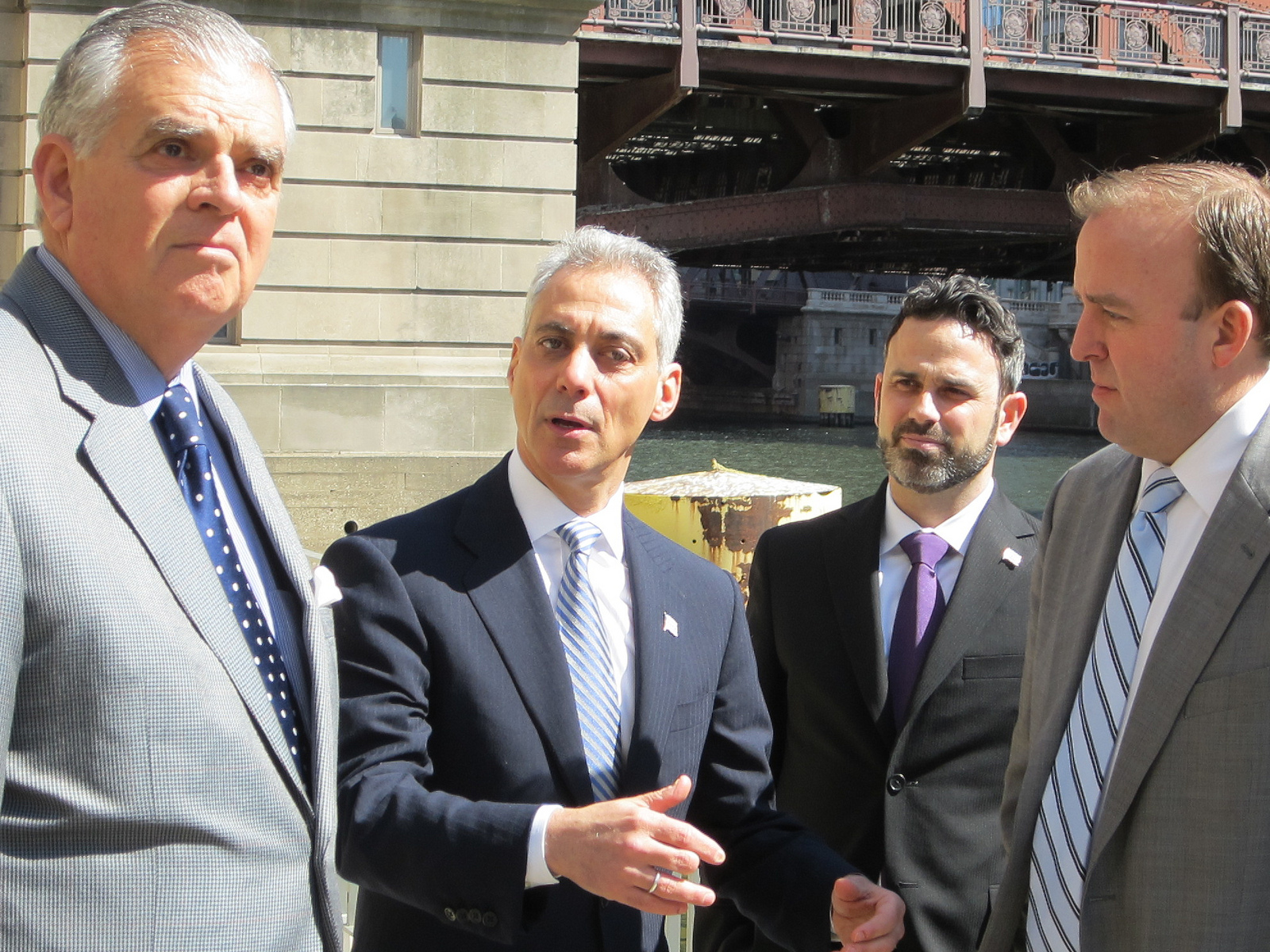When it comes to shared mobility and autonomous vehicles, it’s a brave new world out there, and city governments are scrambling to make sure their transportation policies keep up with disruptive technology. For example, ride-hailing has gutted the taxi industry (arguably due to the unfair advantage of fewer regulations), increased congestion, and decreased transit ridership. Dockless bike and scooter companies are eager to scatter their vehicles all over municipalities in an effort to maximize profits, a phenomenon some have dubbed “street spam.” And self-driving cars have the potential to help more people avoid car ownership and reduce the amount of land used for parking, but they could also lead to more congestion and sprawl if they’re not regulated properly.
To try to get ahead of the curve on these issues, last week Mayor Rahm Emanuel announced the creation of a new transportation and mobility task force headed by Ray LaHood, Barack Obama’s former U.S. Department of Transportation secretary. A native of Peoria and close friend of Emanuel, as USDOT secretary LaHood was known for progressive policies that promoted sustainable transportation. Under LaHood’s leadership Chicago won federal funding for several major transit, walking, and biking projects, most notably the Chicago Riverwalk.
“In just the last few years we have seen an explosion of new transportation options and technologies that are challenging us to think differently about how we manage our transportation systems,” Emanuel said in a statement. “With Ray LaHood’s leadership and expertise, we are going to bring the best and the brightest together to help inform Chicago on how to move forward and maintain our status as a leader in transportation.”
The city plans to announce the members of the task force this fall, including government officials, academics, business people, transportation advocates, and staff from neighborhood development organizations. One member will be Brenna Berman, executive director of City Tech Collaborative, the city’s technology innovation think tank, which has been involved with mobility issues.
Other city agencies that will be involved and provide input to the task force include the Chicago Department of Transportation, the CTA, the Department of Business Affairs and Consumer Protection (which regulates taxis and ride-hailing services), the Department of Finance, and the Mayor’s Office of People with Disabilities. The group will meet over six months, including discussions with experts, local politicians, and other organizations. The task force will issue final recommendations next spring.

The task force is to address the following areas and issues:
- Establishing mobility goals for the city -- such as reducing crashes, congestion, and pollution -- and strategies for effective governance that serve as a framework for planning for, evaluating and managing current and future mobility options and identifying the appropriate city leadership to make sure future decisions align with these goals.
- Proposing changes to technology, policy, and public way use management to support the city’s mobility goals, including regulatory incentives, transit improvements, curbside use policies and data-sharing requirements/infrastructure.
- Reviewing the areas of autonomous, connected and electric vehicles; enhancing CTA and other city transportation assets; promoting low and no carbon mobility choices; and finding sufficient and sustainable funding sources.
It’s a wise decision for the city to attempt to be proactive, rather than reactive when it comes to new transportation options and technologies. Moreover, LaHood seems like a good choice to lead the task force. He has previously shown that he prioritizes sustainable transportation and, as a Republican who worked under a Democratic president, he demonstrated the ability to work across the aisle to come up with sensible mobility solutions.






